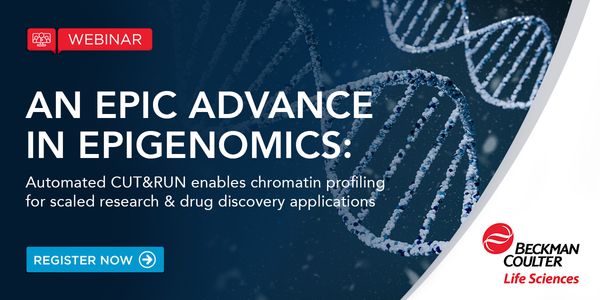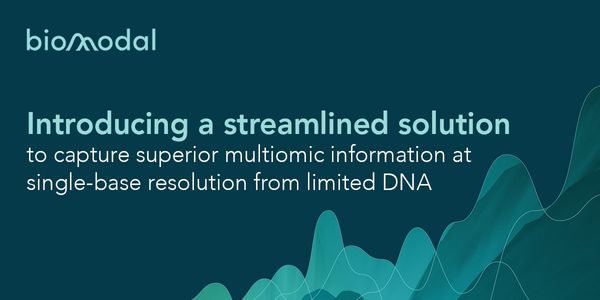Epigenome
The epigenome is a term used to describe all the molecular modifications on DNA within a single cell. Epigenetic markers vary between cell types. The epigenome does not alter the DNA sequence but influences the way cells use genetic information contained in the DNA.
-
...Speaker: Timothy Howard, PhD
OCT 24, 2023 | 10:00 AM
Dynamic changes in chromatin drive gene expression programs during cellular development and contribute to pathological changes underlying disease. To date, efforts to characterize chromatin...
OCT 24, 2023 | 9:00 AM
DNA comprises molecular information stored in genetic and epigenetic bases, both of which are vital to our understanding of biology in health and disease. The interaction of genetics with th...
SEP 07, 2023 | 8:00 AM
Advancements in Next Generation Sequencing (NGS) are changing the genomics industry, favoring those with scale. Quest Diagnostics' clinical expertise, combined with our infrastructure, p...
Speaker:
Ryan Serra, BSc. and Ph.D.
, Matthew Gallen, MPH
, Sameer Vasantgadkar
Sponsored By: Covaris, Inc.
JUL 20, 2023 | 8:00 AM
Single-cell ATAC-seq (Assay for Transposase-Accessible Chromatin using sequencing, scATAC-seq) is a relatively new and powerful technique that allows researchers to identify open chromatin r...
MAY 31, 2023 | 11:00 AM
Date: May 31, 2023 Time: 11:00am (PDT), 2:00pm (EDT), 8:00pm (CET) Single-cell genomics has facilitated the understanding of mechanisms involved in various biological processes such as tumor...
...
Speaker:
Bekim Sadikovic, PhD, DABMG, FACMG
Presented at: OncomineWorld 2024: A Virtual NGS Education Meeting
...
Speaker:
Bekim Sadikovic, PhD, DABMG, FACMG
Presented at: OncomineWorld 2023: A Virtual NGS Education Meeting
SEP 21, 2022 | 10:00 AM
Date: September 21, 2022 Time: 10:00am (PDT), 1:00pm (EDT), 7:00pm (CEST) This talk aims to describe a popular workflow that profiles specific brain cell types in healthy and diseased post-m...
The ongoing COVID-19 pandemic has elevated the need for reliable, cost-effective means for widespread virus detection. This webinar will explore two distinct approaches for isolating viral R...
Speaker:
Nicolas Caffarelli
, Kan Saito, PhD
Computational or mathematical modeling generally refers to a mechanism-based formalism that help us test hypotheses, expand our understanding of a system, or make mechanism-aware predictions...
Prostate cancers are considered immunologically ‘cold’ tumors given the very few patients who respond to checkpoint inhibitor therapy (CPI). Recently, enrichment of interferon st...
Microfluidic technologies have opened up new possibilities for ultra-low volume, and ultrafast assays, compared to bulk-scale counterparts. We have been focused on developing new tools for d...
Laboratory implementation of clinical genomics in children requires customization of analytical tools tailored to profile the divergent mutational landscape in childhood tumors. The relative...























